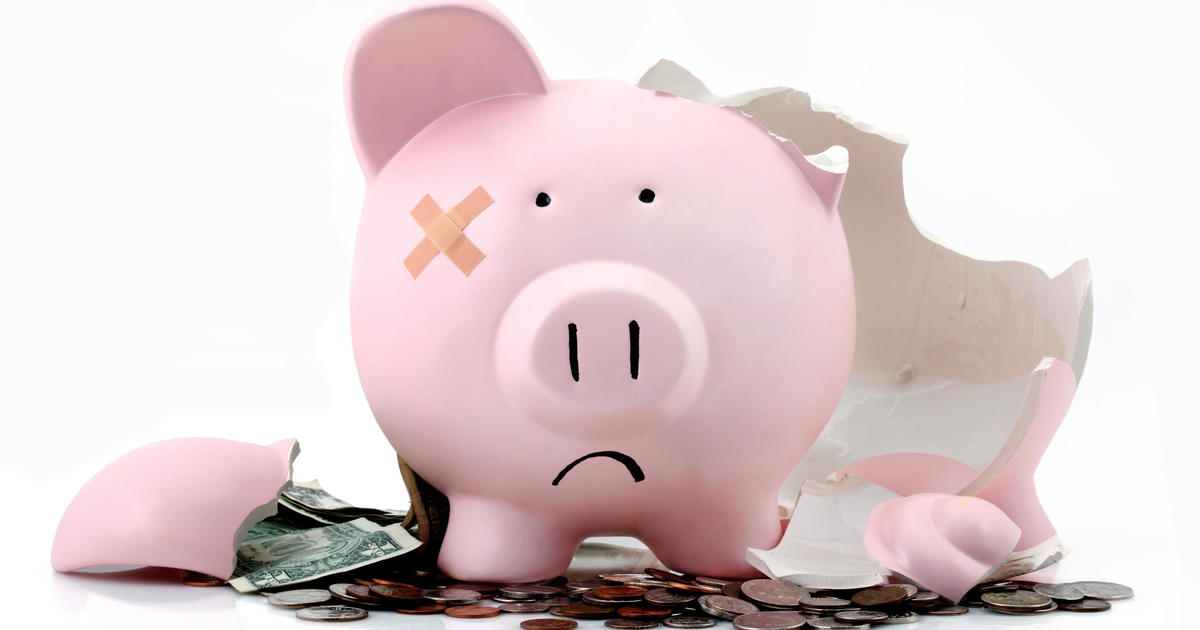Getty Images
With credit card rates now averaging above 23%, millions of Americans are struggling with their credit card debt. As the interest charges compound, it’s easy for this type of debt to grow out of control, especially given today’s rates. But effectively managing any type of debt — and credit card debt, in particular — can be especially challenging when paired with a poor credit score.
A low credit score can severely limit your borrowing options, as borrowers with damaged credit are considered risky to lenders. This means that certain debt relief strategies, like using a balance transfer card to temporarily wipe out interest charges, can be out of reach. As a result, figuring out how to address your credit card debt when your credit score is low can feel like an impossible task.
Many people in this situation consider debt consolidation or debt forgiveness as potential solutions. While both strategies aim to alleviate debt burdens, they work quite differently. With debt consolidation, the goal is to roll multiple debts into one loan with a lower interest rate. With debt forgiveness, the goal is to get your creditors to agree to a lower lump-sum settlement to reduce the amount you owe. Both can provide serious relief from high-rate card debt, but which one makes more sense for those facing this type of situation?
Compare the credit card debt relief options available to you here.
Does debt consolidation or debt forgiveness make more sense with bad credit?
When dealing with bad credit, debt forgiveness often emerges as the more accessible option compared to debt consolidation. That’s because traditional debt consolidation loans are acquired from banks, credit unions or other types of lenders and typically require a decent credit score to qualify for a new loan with favorable terms. If you have bad credit, debt consolidation loans tend to come with high interest rates that might not provide meaningful relief from existing debt burdens — and in certain cases, you may not be approved at all.
On the other hand, debt forgiveness programs, which are offered by debt relief companies, don’t typically require good credit scores to be eligible. These programs focus more on factors like the total debt amount you have, the types of debt you need to settle and your ability to make consistent monthly payments toward a settlement fund. While debt forgiveness can further damage your credit by requiring you to stop making payments to your creditors, this process might offer a faster path to financial recovery, especially if you’re already struggling with poor credit.
However, debt consolidation shouldn’t be completely ruled out if you have bad credit. There are several options for those with lower credit scores, including:
- Debt consolidation programs offered by debt relief companies, which typically have more flexible lending requirements
- Secured debt consolidation loans that use collateral to lower the risk for lenders
- Home equity loans (for homeowners), which can be more accessible since they’re secured by the equity in your home
- Debt management plans through credit counseling agencies, which can consolidate your monthly payments while lowering your interest rates or fees
So, if you’d prefer to avoid damaging your credit further by enrolling in a debt forgiveness program, it can still make sense to look into these alternative debt consolidation routes. You may find that one or the other works with your current credit score and financial situation.
Tackle your expensive credit card debt today.
How to decide on the right debt relief option
When deciding between debt consolidation and debt forgiveness, it’s important to start by considering your financial stability, goals and current income. If you have a stable income but struggle with high-interest debts, debt consolidation might be more feasible and beneficial in the long term. Securing a debt consolidation loan with a lower interest rate can make monthly payments more manageable, even if your credit score isn’t ideal. If you’re not eligible for a traditional loan, there are debt consolidation programs that might work with you to secure a loan despite poor credit.
If your debts are so overwhelming that debt consolidation is out of reach, debt forgiveness may be a better option. This is often the case for people experiencing a financial crisis, such as a sudden job loss, major health expenses or other unforeseen circumstances. Debt forgiveness programs can reduce the total amount you owe by 30% to 50% on average, which can be a big relief for those who simply can no longer afford to pay off their balance in full.
It’s also worth weighing the long-term impact on your credit score when choosing between these options. Debt consolidation, if managed well, can potentially boost your credit score over time by reducing your credit utilization ratio and demonstrating a commitment to repaying debt. In contrast, debt forgiveness can lead to a temporary drop in credit, as settled debts are typically reported to credit bureaus and you may be required to miss payments during the negotiation process.
The bottom line
Deciding between debt consolidation and debt forgiveness is a highly personal choice and should be based on your unique financial situation and goals. With bad credit, each option has challenges, but they also offer distinct forms of relief. Debt consolidation may be suitable if you’re capable of managing a single monthly payment at a lower interest rate, providing an opportunity to rebuild your credit over time. Debt forgiveness, while offering immediate debt relief, may be more appropriate if your financial circumstances make consistent repayment impossible.


Leave a Reply